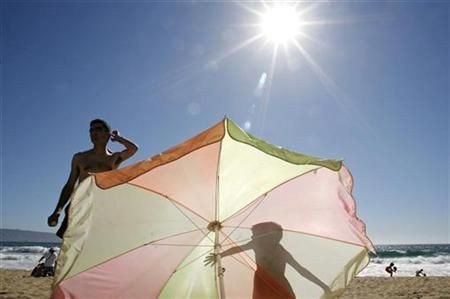Sun exposure and high vitamin D level improves weight-loss surgery outcomes

Sun exposure promotes better outcomes for patients undergoing bariatric or weight-loss surgery. A study from Johns Hopkins Medicine provides new evidence that seasonal sun exposure and vitamin D levels play major roles in how well people do after such operations.
“Sun exposure is critical in the synthesis of vitamin D, so the notion that people living in less sunny northern states may suffer from vitamin D deficiency is not surprising,” study author Leigh Peterson, a nutritionist and postdoctoral research fellow at the Johns Hopkins Centre for Bariatric Surgery, said in a press release. “What is remarkable is how closely sun exposure, vitamin D and surgical outcomes were linked.”
The researchers analysed 932,091 patients who underwent bariatric surgery in the US. The team compared the results of patients who had surgery in the winter, summer and fall or spring. Unpleasant outcomes from the surgery were rare and only one percent developed infections. However, prolonged hospital stay was a common observation among these patients.
Between 2001 and 2010, the researchers noted that patients undergoing bariatric surgery during winter experienced more complications than patients who undergo surgery during summer time. Plus, patients in the north also fared worse than patients in the south, areas that have more sunshine. Seventy-one percent of the 300,000 surgeries that resulted to an extended hospital stay were seen in areas north of South Carolina.
Delayed wound healing and wound infections were more commonly seen during colder seasons with less sunshine, suggesting that vitamin D influences the results of patients who undergo surgery. Moreover, the researchers claimed that 349 patients experienced wound complications in the winter, more than twice the 172 patients reported who had operations done in the summer.
Further research must be done to identify proper preemptive treatment with the vitamin D in patients undergoing bariatric surgery, according to the researchers. Experts recommend patients to get vitamin D from brief but frequent sun exposure, healthy diet and supplementation. The team also advises that preparation for patients undergoing weight-loss surgery must include screening for vitamin D levels.
The researchers said that nutritional deficiencies generally cause inflammation, infection and wound complications. Hence, identification and correction of any deficiency should be accomplished. The team is planning to measure the vitamin D levels of patients undergoing surgery to identify proper doses for vitamin prescription in their next research.




















